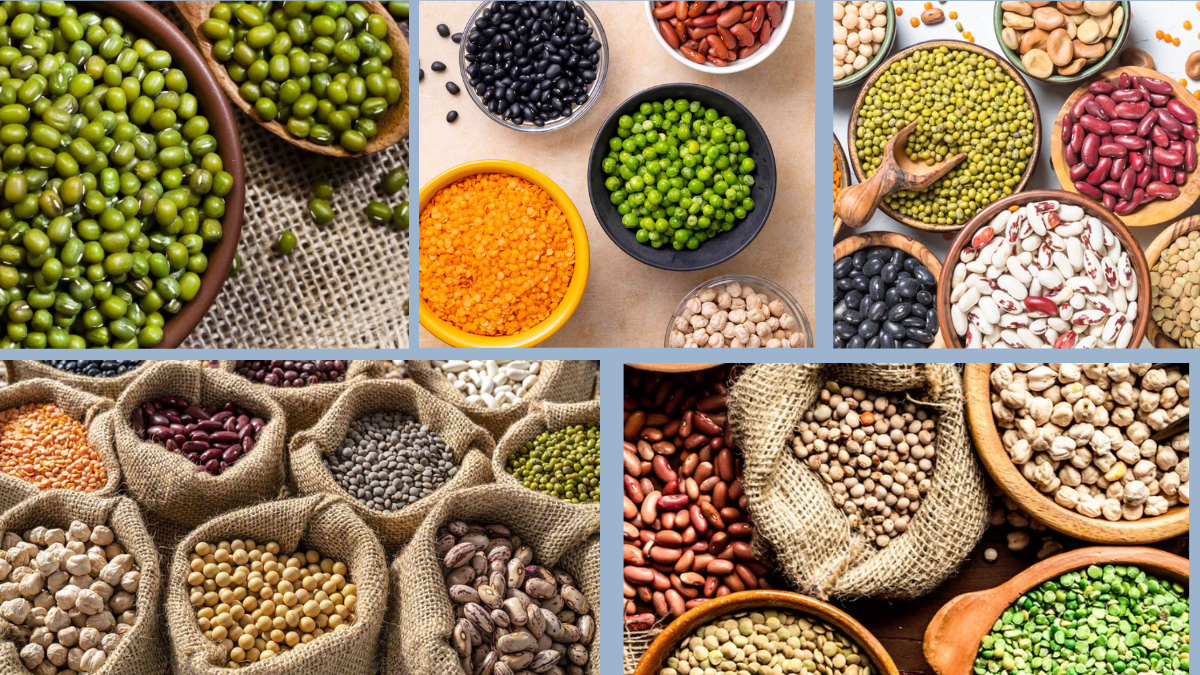Science-backed choices to nourish your microbiome and support digestion—no meat required.
Why Gut Health Matters
Gut health isn’t just about avoiding bloating or staying regular—it’s the foundation of your immune system, brain function, metabolism, and overall well-being. A thriving gut microbiome, rich in diverse and beneficial bacteria, helps reduce inflammation, improve nutrient absorption, and even influence mood and mental clarity.
One of the easiest and most powerful ways to boost gut health? Eating more beans.
Beans are fiber-packed, plant-based powerhouses. They contain both soluble and insoluble fiber, as well as prebiotics, which feed the “good” bacteria in your gut. They’re also naturally free of animal products, cholesterol, and processed additives.
Let’s explore the best beans for gut health, based on scientific research—and how to enjoy them in your daily vegetarian meals.
1. Black Beans: A Prebiotic Powerhouse
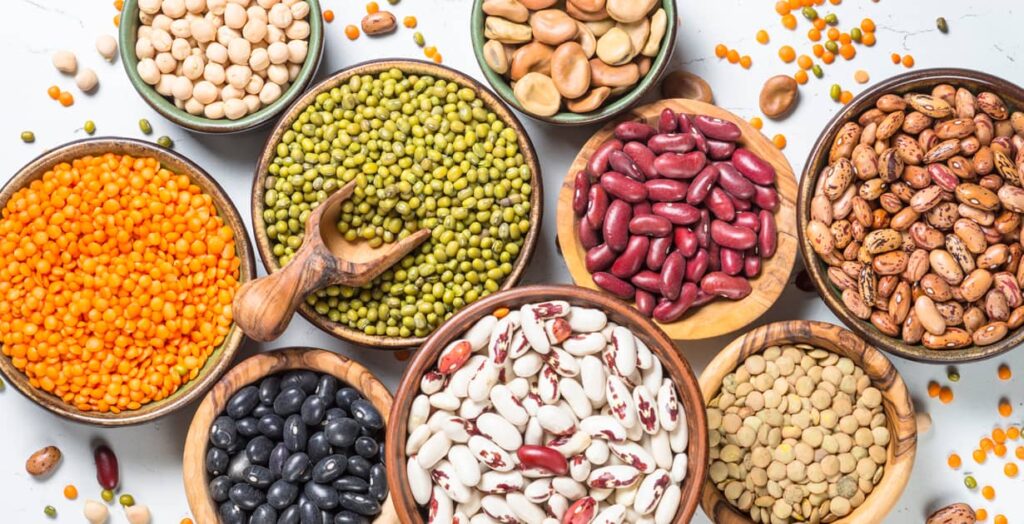
Black beans are one of the most studied legumes for gut health, and for good reason. They’re rich in resistant starch, a type of carbohydrate that resists digestion in the small intestine and ferments in the colon, where it feeds beneficial bacteria like Bifidobacteria.
What Research Says:
Studies have shown that black beans increase levels of short-chain fatty acids (SCFAs) in the colon—especially butyrate, which strengthens the intestinal lining, reduces inflammation, and lowers the risk of colorectal cancer.
How to Eat:
- Add to salads and burrito bowls
- Mash into veggie burgers or dips
- Cook with brown rice, garlic, cumin, and lime for a fiber-rich bowl
2. Lentils: The Gut-Supportive All-Rounder
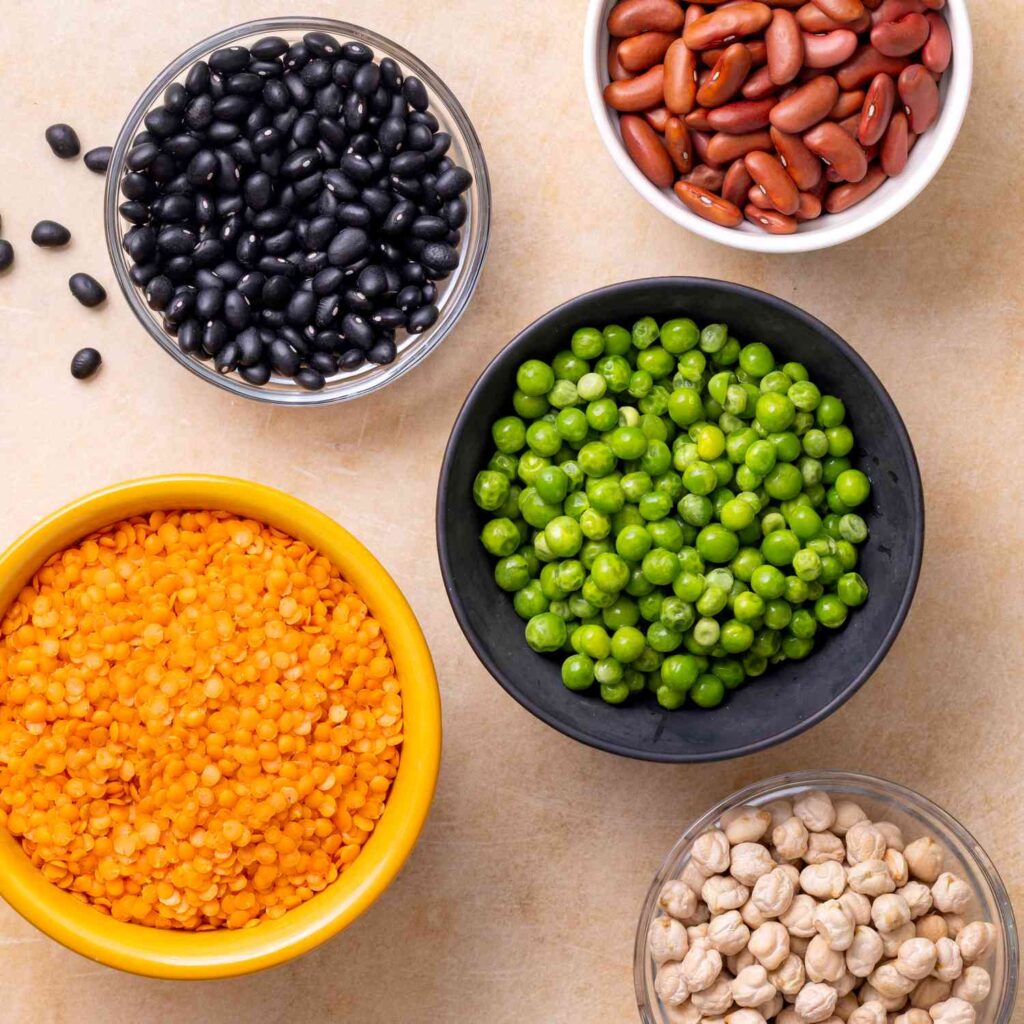
Lentils are high in soluble fiber, which absorbs water and turns into a gel-like substance in the gut. This slows digestion, stabilizes blood sugar, and supports the growth of beneficial gut bacteria.
What Research Says:
Lentils have been shown to improve gut motility (how things move through your system) and reduce the risk of constipation. Their high fiber content also lowers cholesterol and supports cardiovascular health—an added bonus.
How to Eat:
- Make lentil soups, dals, or stews
- Toss cooked lentils into grain bowls or salads
- Blend into veggie spreads or loaf mixtures
3. Chickpeas: High Fiber, High Satisfaction
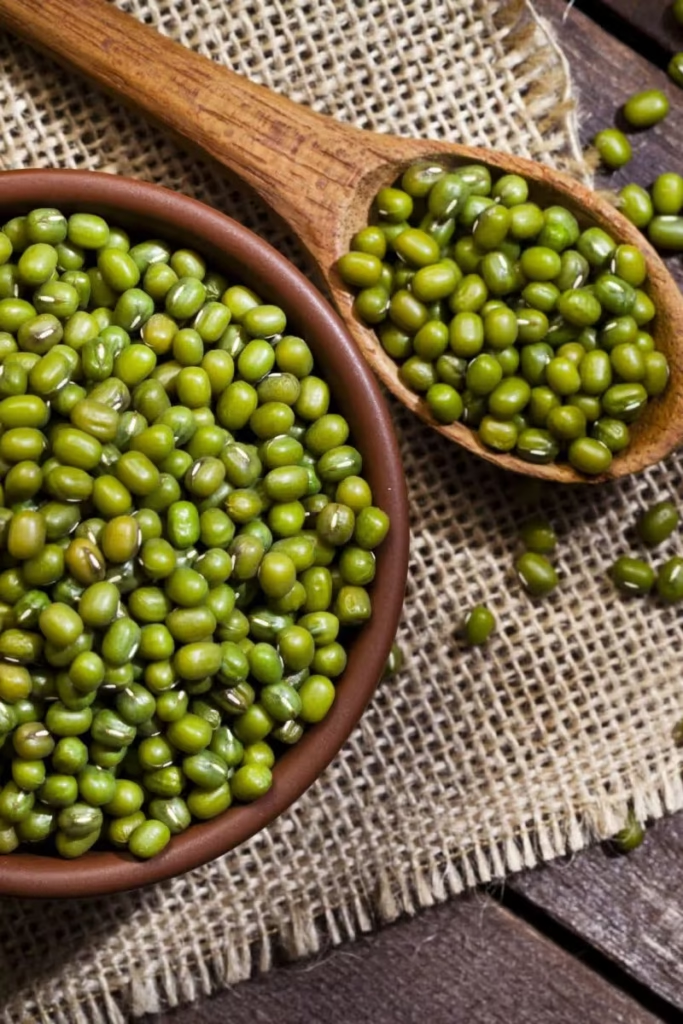
Chickpeas, also known as garbanzo beans, are rich in both soluble and insoluble fiber, as well as resistant starch. They’re also loaded with protein, iron, and folate—making them perfect for plant-based diets.
What Research Says:
In one study, participants who consumed chickpeas daily saw significant improvements in bowel regularity and increased microbial diversity, a key marker of good gut health.
How to Eat:
- Blend into hummus or dips
- Roast for a crunchy, satisfying snack
- Use in curries, salads, or veggie patties
4. Navy Beans: Fiber-Rich Colon Cleanser
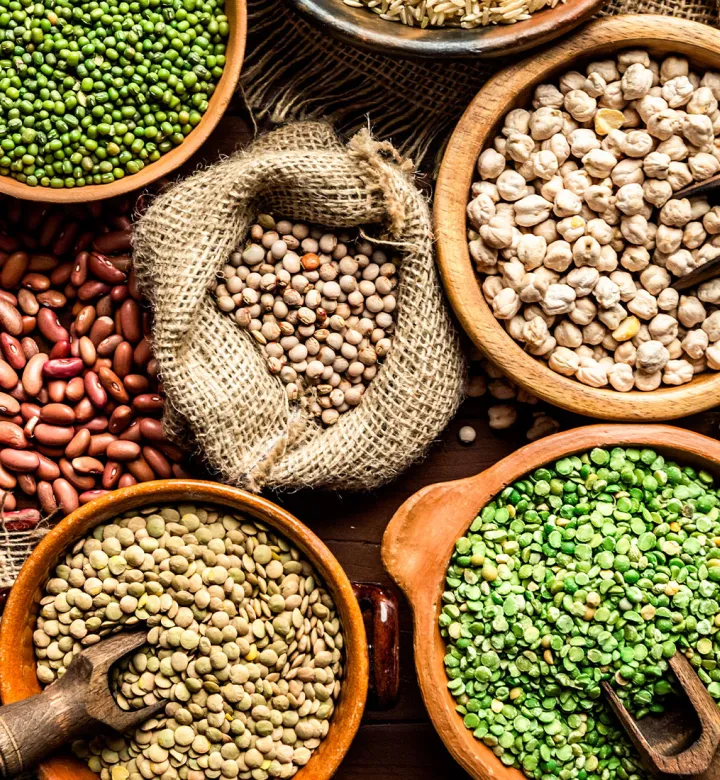
Navy beans (also called white beans) are small but mighty. With about 19 grams of fiber per cup, they’re among the highest-fiber legumes you can eat. Their mix of soluble and insoluble fiber makes them perfect for supporting gut balance and regular elimination.
What Research Says:
Navy beans have been linked to lower colon cancer markers and improved gut microbial activity, according to research published in the Journal of Nutrition.
How to Eat:
- Add to vegetable soups or minestrone
- Puree into a creamy plant-based white bean dip
- Stir into pasta dishes or casseroles
5. Adzuki Beans: Small Bean, Big Benefits
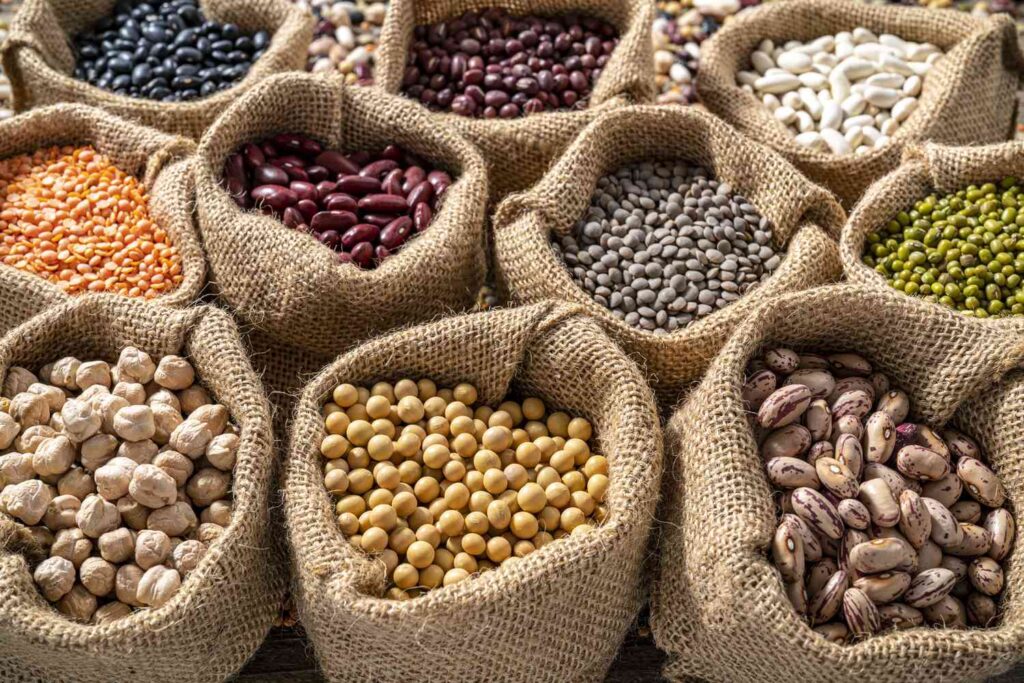
Popular in East Asian cuisine, adzuki beans are often overlooked in Western kitchens—but they deserve more attention. These small red beans are high in soluble fiber and antioxidants.
What Research Says:
Studies suggest adzuki beans may help promote the growth of Lactobacillus and Bifidobacterium, two beneficial gut bacteria linked to immune and digestive health. They also help improve bowel transit time and may ease constipation.
How to Eat:
- Use in Japanese-style rice bowls
- Sweeten lightly with dates and mash into a spread
- Add to soups, stews, or whole grain salads
6. Mung Beans: Gentle and Easy to Digest
Mung beans are easier on the stomach compared to other legumes, making them a great entry point for those transitioning to a higher-fiber vegetarian diet.
What Research Says:
Mung beans contain oligosaccharides that support microbial fermentation in the colon, boosting SCFA production. They also contain anti-inflammatory compounds that help soothe the gut lining.
How to Eat:
- Sprout and toss into salads or wraps
- Make traditional Indian mung dal (split mung stew)
- Use in soups or cook with turmeric and ginger for gut-healing benefits
What Makes Beans So Good for Gut Health?
Here are three reasons beans deserve the spotlight when it comes to digestive wellness:
1. Fiber Content
Most beans provide between 12–19 grams of fiber per cooked cup—well over one-third of your daily recommended intake.
2. Prebiotics
Beans feed beneficial bacteria in your gut, helping produce short-chain fatty acids (SCFAs) that lower inflammation and nourish your colon.
3. Phytochemicals
Beans contain polyphenols and antioxidants, which support a healthy microbiome by reducing oxidative stress and inflammation in the gut.
What About Gas and Bloating?
It’s true—beans can cause gas, especially if you’re not used to eating them. But that doesn’t mean they’re bad for you.
How to minimize discomfort:
- Start slowly: Add beans gradually to your diet so your gut bacteria can adjust.
- Rinse well: If using canned beans, rinse thoroughly to reduce oligosaccharides.
- Cook thoroughly: Well-cooked beans are easier to digest.
- Add gut-friendly herbs: Spices like cumin, ginger, turmeric, and fennel can reduce bloating.
With time, your gut becomes more efficient at digesting beans—and the benefits far outweigh the temporary discomfort.
Final Thoughts: Let Beans Be Your Gut’s Best Friend
Beans are a plant-based superfood when it comes to gut health. Backed by science and packed with fiber, resistant starch, prebiotics, and phytonutrients, they feed your good bacteria, reduce inflammation, and keep your digestive system running smoothly.
Whether you’re building a chili, crafting a creamy dip, or tossing them into a salad, incorporating more of these gut-friendly beans—like black beans, lentils, chickpeas, and adzuki—can help you thrive from the inside out.
Pro tip: Aim for at least ½ to 1 cup of beans daily and pair them with other high-fiber whole foods for maximum benefit.
